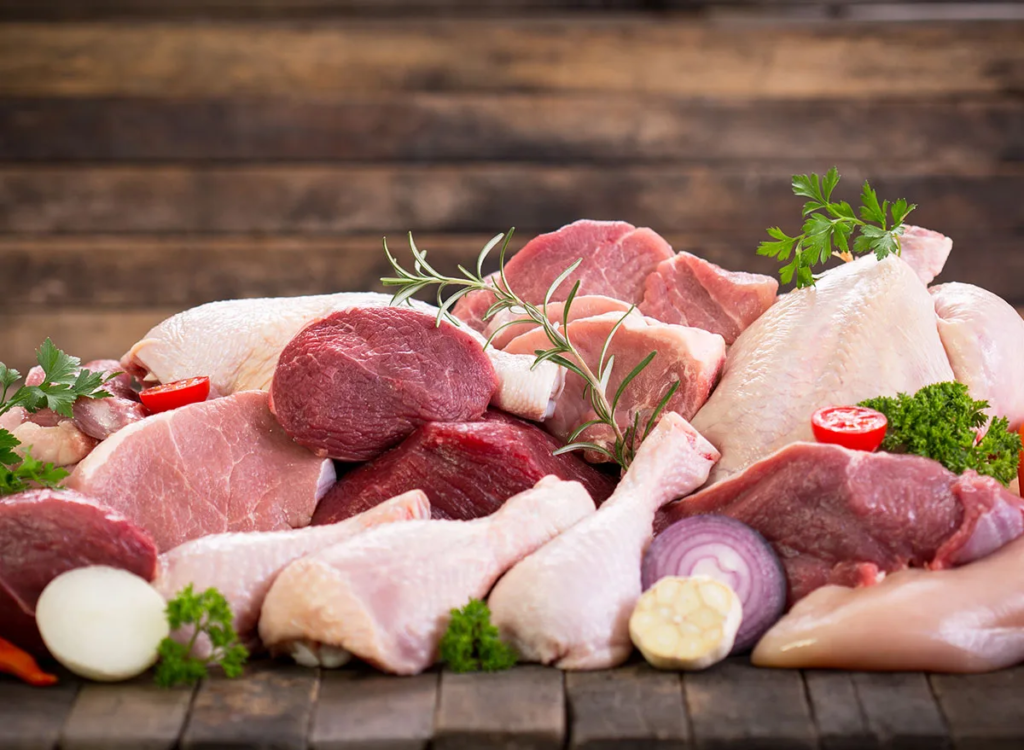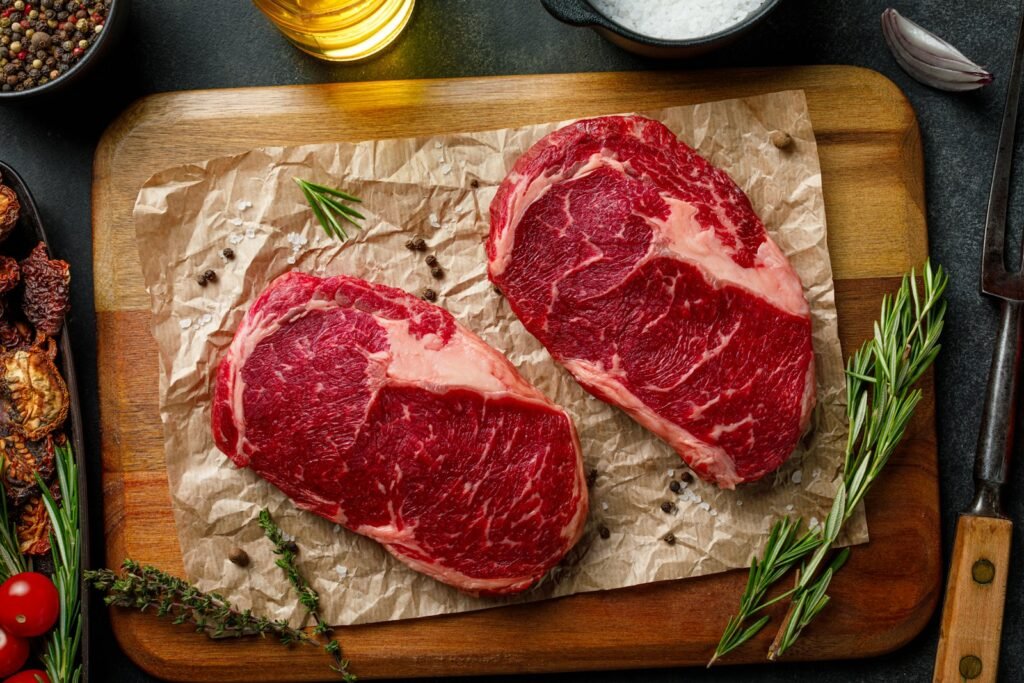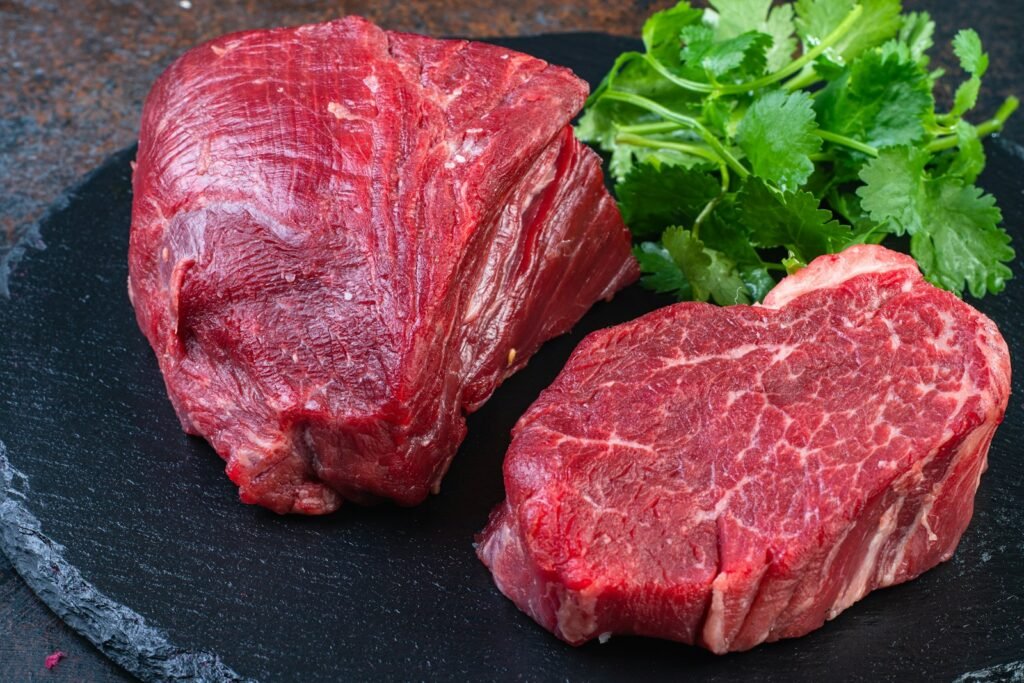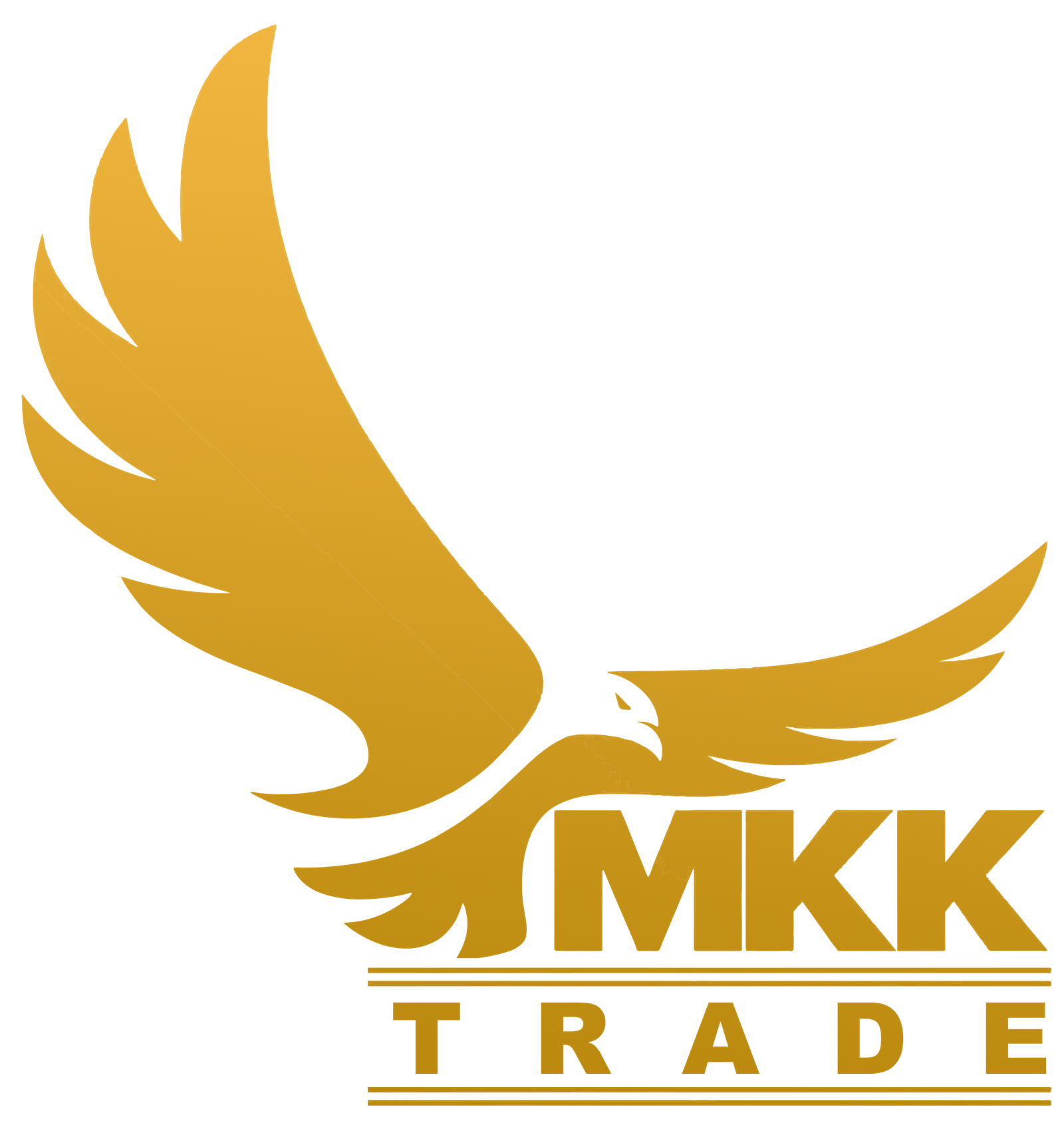Office #207-2nd Floor-ZALFA BUILDING-NEAR Jumeirah Creekside Hotel-Garhoud -Dubai UAE
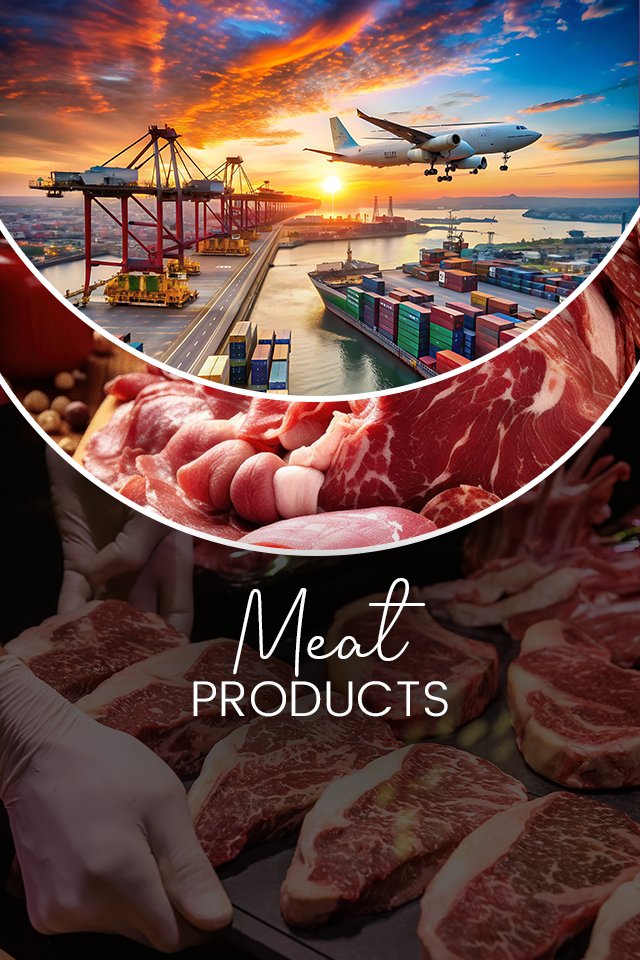
Delivering Premium Quality Meat to Your Business
Meat Products exporter
MKK Trade is a trusted provider of premium-quality meat products, offering a wide range of options to cater to diverse industries such as food retail, hospitality, and food processing. Our meat products are sourced from certified suppliers who adhere to the highest standards of hygiene, quality, and ethical farming practices. We ensure that your business receives fresh, safe, and top-quality meat products that meet both international standards and your specific requirements.
Fabric Trading
Fabrics that Inspire: MKK Trade's Textile Solutions
Building Materials
Building Strong Foundations with MKK Trade
Foodstuffs
Your Trusted Source for Global Food Products
Fish
Choose your favorite category mauris orci dignissim nisl
Wine
Choose your favorite category mauris orci dignissim nisl
Pizza
Choose your favorite category mauris orci dignissim nisl
Chicken
Choose your favorite category mauris orci dignissim nisl
Burger
Choose your favorite category mauris orci dignissim nisl
Dessert
Choose your favorite category mauris orci dignissim nisl
Our Meat Products Offerings
Beef
- Grass-fed and grain-fed options
- Whole cuts including steaks, ribs, and roasts
- Ground beef for processing and foodservice needs
Poultry
- Whole chickens and chicken cuts such as breasts, wings, thighs, and drumsticks
- Free-range and organic options available
Lamb and Mutton
- Tender lamb cuts such as chops, legs, and shoulders
- Mutton products for traditional dishes and diverse cuisines
Processed Meat Products
- Sausages, deli meats, and cured products
- Halal and non-halal options available to cater to specific markets
Efficient Cold Chain Logistics
Quality and Consistency
Ethical and Sustainable Practices
At MKK Trade, we understand the importance of high-quality meat in delivering a superior product to your customers. Whether you’re in the restaurant business, food retail, or food processing, our premium meat products are designed to meet the highest expectations in terms of flavor, safety, and quality. We offer flexible ordering options and a reliable supply chain to ensure your meat products are delivered fresh and on time.
Starting from
$6
Why Choose us :
Certified and Safe Sourcing
All our meat products come from certified suppliers and farms that follow strict hygiene, animal welfare, and food safety standards, ensuring that your business receives top-grade, safe meat products.
Custom-Cut and Packaged Solutions
MKK Trade offers customized meat products, from specific cuts to tailored packaging solutions, allowing you to receive meat products exactly as required by your business operations.
Efficient Cold Chain Logistics
We manage a fully integrated cold chain to ensure that your meat products are stored and delivered at the perfect temperature, maintaining freshness and safety throughout the supply pr
Customized Solutions
Global Network of Suppliers
Efficient Logistics and Timely Delivery
Desserts
Choose your favorite category mauris orci dignissim nisl, id gravida nunc enim quis nibh. Maecenas convallis eros a ante dignissim.
Starting from
$12
Panna cotta$18
Maecenas interdum lorem eleifend orci aliquam mollis.
Chocolate cake$14
Maecenas interdum lorem eleifend orci aliquam mollis.
Fruit and almond tart$25
Maecenas interdum lorem eleifend orci aliquam mollis.
Lemon and almond cake$14
Maecenas interdum lorem eleifend orci aliquam mollis.
Tiramisu$12
Maecenas interdum lorem eleifend orci aliquam mollis.
Chocolate pudding$15
Maecenas interdum lorem eleifend orci aliquam mollis.
Strawberry cheesecake$25
Maecenas interdum lorem eleifend orci aliquam mollis.
Italian ice cream$35
Maecenas interdum lorem eleifend orci aliquam mollis.
Meat Products exporter Exporting meat products involves navigating a complex landscape of regulations, quality standards, and market dynamics. Below is a detailed overview of key aspects related to meat products exporters: 1. Types of Meat Products Beef: Includes fresh, frozen, and processed beef products such as steaks, ground beef, and beef jerky. Pork: Various forms of pork, including fresh cuts, cured products like bacon and ham, and sausages. Poultry: Chicken, turkey, and duck products, available fresh, frozen, or processed (e.g., nuggets, sausages). Lamb and Goat: Both fresh and processed lamb and goat meat, popular in various markets. Processed Meats: Includes deli meats, hot dogs, salami, and other value-added products. 2. Quality Standards and Certifications HACCP: Hazard Analysis and Critical Control Points is crucial for ensuring food safety throughout the supply chain. ISO Standards: Compliance with International Organization for Standardization (ISO) standards ensures quality management and safety. Halal Certification: Important for exporting to Muslim-majority countries, ensuring that meat products meet specific religious requirements. USDA/FDA Standards: In the U.S., compliance with United States Department of Agriculture (USDA) and Food and Drug Administration (FDA) regulations is essential for meat exports. 3. Export Markets Middle East: Countries like the UAE, Saudi Arabia, and Qatar are significant markets for halal meat products. Asia: Nations like China, Japan, and South Korea have growing demand for premium meat products. Europe: Exporting to European countries requires adherence to strict health and safety regulations, including traceability. Africa: There is an increasing demand for quality meat products in several African nations, creating opportunities for exporters. 4. Supply Chain and Logistics Cold Chain Management: Maintaining a cold chain during transportation and storage is critical to ensure meat quality and safety. Transportation Modes: Depending on the destination and product type, exporters may use refrigerated trucks, air freight, or sea containers. Documentation: Proper export documentation, including health certificates, customs declarations, and invoices, is vital for smooth customs clearance. 5. Market Trends Sustainability: Increasing demand for sustainably sourced and ethically produced meat products is shaping export strategies. Plant-Based Alternatives: The rise of plant-based meat alternatives is influencing traditional meat markets, with some exporters diversifying their product offerings. E-commerce: Growing online meat sales are opening new channels for exporters to reach consumers directly. 6. Challenges Faced by Meat Exporters Regulatory Compliance: Navigating the complex landscape of international trade regulations can be challenging. Market Competition: Intense competition from local producers and other exporters can impact market share. Economic Factors: Fluctuations in currency exchange rates and economic conditions in target markets can affect profitability. Conclusion Exporting meat products involves understanding market dynamics, adhering to strict quality and safety standards, and managing complex logistics. By navigating these challenges effectively and capitalizing on emerging trends, meat exporters can successfully tap into growing international markets, ensuring the quality and safety of their products while meeting consumer demands. MKK Trade is known for its specialization in exporting a variety of meat products. Here are some key specialties that highlight their offerings in the meat export sector: 1. Diverse Range of Meat Products Beef: MKK Trade exports various beef cuts, including steaks, ribs, and ground beef. They ensure that their products meet international quality standards and cater to different culinary preferences. Pork: The company specializes in a wide array of pork products, such as fresh cuts, sausages, and cured meats. MKK Trade emphasizes quality and hygiene in their pork processing. Poultry: MKK Trade exports chicken and turkey products, including whole birds, cuts, and processed items like nuggets and marinated meats. Lamb and Goat: The company offers lamb and goat meat, which are particularly popular in various markets, including the Middle East and South Asia. 2. Quality Assurance and Safety Standards HACCP Compliance: MKK Trade adheres to Hazard Analysis and Critical Control Points (HACCP) standards to ensure food safety throughout the supply chain. Certifications: They possess various certifications that guarantee the quality and safety of their meat products, including ISO and halal certifications, catering to diverse market needs. 3. Customized Packaging Solutions MKK Trade provides tailored packaging solutions that preserve meat freshness and extend shelf life. Their packaging is designed to meet the specific requirements of different export markets, ensuring compliance with international standards.Meat Products exporter Meat Products exporter Meat Products exporter Meat Products exporter Meat Products exporter Meat Products exporter Meat Products exporter Meat Products exporter Meat Products exporter Meat Products exporter Meat Products exporter Meat Products exporter Meat Products exporter Meat Products exporter Meat Products exporter Meat Products exporter Meat Products exporter Meat Products exporter Meat Products exporter Meat Products exporter Meat Products exporter Meat Products exporter 4. Cold Chain Logistics The company utilizes advanced cold chain logistics to maintain optimal temperature conditions during transportation. This ensures that meat products retain their quality and safety from processing to delivery. 5. Sustainable Sourcing Practices MKK Trade emphasizes sustainable sourcing and ethical practices in meat production. They work with suppliers committed to animal welfare and environmentally friendly practices, appealing to increasingly conscious consumers. 6. Global Market Reach MKK Trade has established a strong presence in various international markets, including the Middle East, Europe, and Asia. They tailor their export strategies to meet the preferences and regulatory requirements of each market. 7. Strong Supplier Relationships The company fosters robust relationships with suppliers and producers, ensuring a steady supply of high-quality meat products. This network helps them maintain consistency and reliability in their exports. 8. Responsive Customer Service MKK Trade prioritizes customer satisfaction by offering responsive customer service. They provide support throughout the export process, from order placement to delivery, ensuring a smooth experience for clients. Conclusion MKK Trade's specialties in meat exporting encompass a diverse range of products, stringent quality assurance measures, customized solutions, and a commitment to sustainability. These factors contribute to their reputation as a reliable meat exporter in the global market, meeting the demands of various consumers and businesses. The relevance of meat products in the global market is underscored by their integral role in culinary traditions, nutritional value, and economic significance. Meat serves as a primary source of protein for billions of people worldwide, making it essential for balanced diets, especially in developing regions where alternative protein sources may be limited. It is rich in vital nutrients, including vitamins, minerals, and essential fatty acids, contributing to overall health and well-being. Moreover, meat products are often at the center of cultural and social gatherings, playing a crucial role in various cuisines and traditions. From an economic perspective, the meat industry is a significant driver of employment and economic growth. It encompasses a vast supply chain, from livestock farming to processing and distribution, creating jobs at various levels. The export of meat products also generates substantial revenue for countries, particularly those with established agricultural sectors. Emerging markets, especially in Asia and Africa, show an increasing demand for meat, influenced by rising incomes and changing dietary preferences. As populations grow and urbanize, the consumption of meat products is expected to rise, further solidifying their importance in global food systems. In addition to these factors, the relevance of meat products is also shaped by ongoing trends and innovations within the industry. Advances in technology have improved production efficiency, animal welfare, and traceability, addressing consumer concerns about food safety and sustainability. As consumers become more health-conscious, there is a growing demand for leaner cuts and organic or grass-fed options. Furthermore, the rise of alternative protein sources, such as plant-based meats, has prompted the meat industry to adapt and diversify its offerings to remain competitive. This evolution reflects a broader shift in consumer behavior, where individuals are increasingly seeking transparency in sourcing and production methods. Sustainability is another critical aspect influencing the relevance of meat products. With growing awareness of environmental issues, the meat industry is under pressure to adopt more sustainable practices. This includes improving animal husbandry practices, reducing greenhouse gas emissions, and minimizing waste throughout the supply chain. Initiatives aimed at sustainable meat production are becoming more common, with producers looking to balance consumer demand for meat with the need to protect the environment. In summary, meat products maintain their relevance due to their nutritional significance, economic impact, and adaptability to changing consumer preferences and societal concerns. As the global landscape continues to evolve, the meat industry faces both challenges and opportunities, requiring stakeholders to innovate and respond effectively to the demands of consumers while ensuring sustainability and ethical practices. The future of meat products will likely involve a combination of traditional practices and modern innovations, emphasizing quality, safety, and environmental stewardship. The health implications of meat products are multifaceted and have been the subject of extensive research and debate. While meat has historically been a staple in many diets worldwide, its role in nutrition and health is influenced by various factors, including the type of meat, the method of preparation, and individual dietary needs. Nutritional Benefits One of the primary reasons meat products are considered healthy is their high protein content. Meat is a complete protein source, meaning it provides all essential amino acids required for the body's growth, repair, and maintenance. Protein is crucial for muscle development, tissue repair, and the production of enzymes and hormones. This makes meat particularly beneficial for athletes, individuals engaged in heavy physical labor, and those recovering from illness or injury. In addition to protein, meat is a rich source of essential vitamins and minerals. Red meats, such as beef and lamb, are excellent sources of iron, particularly heme iron, which is more readily absorbed by the body compared to non-heme iron found in plant sources. This is particularly important for individuals at risk of iron deficiency, such as pregnant women and vegetarians. Meat also contains vital B vitamins, including B12, which is essential for nerve function and the formation of red blood cells. Additionally, meats provide zinc and selenium, both of which play significant roles in immune function and metabolic processes. Meat Products exporter Meat Products exporter Meat Products exporter v Meat Products exporter vv Meat Products exporter Meat Products exporter Meat Products exporter Meat Products exporter Meat Products exporter Meat Products exporter Meat Products exporter Meat Products exporter Meat Products exporter Meat Products exporter Meat Products exporter Meat Products exporter Meat Products exporter Meat Products exporter Meat Products exporter Meat Products exporter Meat Products exporter Meat Products exporter Meat Products exporter Mental and Emotional Well-Being Research has indicated that a balanced diet that includes meat can positively impact mental health. The nutrients found in meat, such as omega-3 fatty acids (in fatty fish like salmon) and vitamins B6 and B12, contribute to brain health. Omega-3 fatty acids are known for their anti-inflammatory properties and have been linked to a reduced risk of depression and anxiety. Moreover, the protein content in meat can help stabilize blood sugar levels, potentially preventing mood swings associated with blood sugar fluctuations. Culinary Diversity and Satiety Incorporating meat into a balanced diet can enhance culinary variety, making meals more enjoyable and satisfying. The distinct flavors and textures of various meats can create appealing dishes that contribute to a well-rounded diet. Additionally, meat is known for its satiating properties, meaning it can help individuals feel full for longer periods. This can be beneficial in managing portion sizes and reducing the overall caloric intake, which is particularly important for those looking to maintain a healthy weight. Considerations for Healthier Choices While meat has numerous health benefits, it is essential to consider the type of meat and how it is prepared. Processed meats, such as bacon, sausages, and deli meats, have been linked to health risks when consumed in excess, including an increased risk of certain cancers, cardiovascular diseases, and obesity. This has prompted health organizations to recommend moderating the intake of processed meats while promoting lean cuts of fresh meat. Choosing leaner cuts of meat, such as chicken breast, turkey, or lean cuts of beef and pork, can help mitigate health risks while providing essential nutrients. Furthermore, cooking methods matter; grilling, baking, or steaming are healthier options compared to frying or cooking with excessive oil. Incorporating plant-based foods alongside meat can also enhance health benefits. A balanced plate that includes vegetables, whole grains, and healthy fats can improve nutrient intake and promote overall health. Conclusion In conclusion, meat products can be a healthy addition to a balanced diet, offering essential nutrients that support physical and mental well-being. The key lies in making informed choices about the types of meat consumed, the methods of preparation, and the overall dietary context. By opting for lean cuts, minimizing processed meats, and pairing meat with a variety of plant-based foods, individuals can harness the health benefits of meat while contributing to their overall nutritional needs. As dietary preferences evolve, it is crucial to approach meat consumption mindfully, ensuring that it aligns with personal health goals and ethical considerations.
